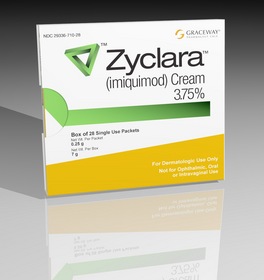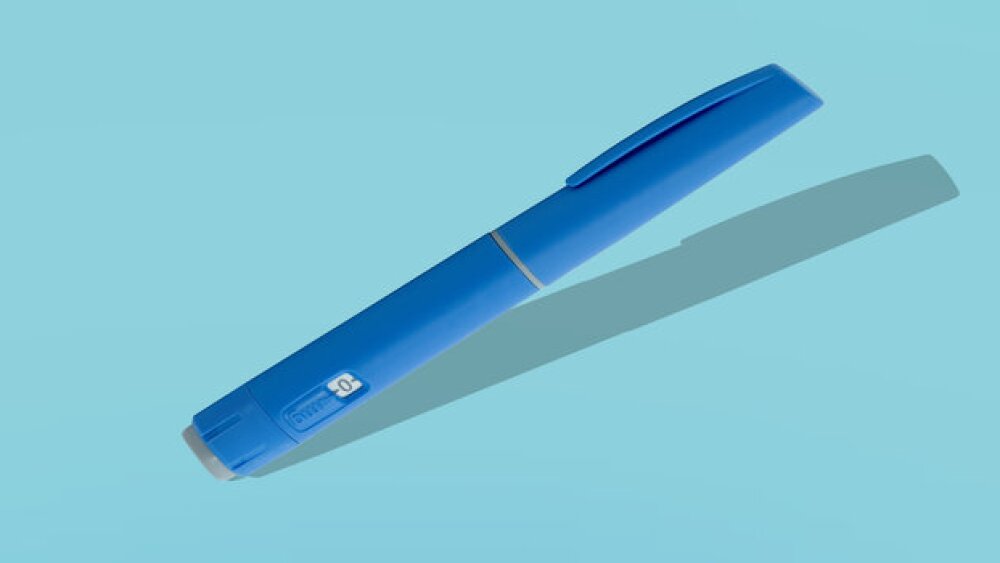BRISTOL, TN--(Marketwire - March 30, 2010) -
| Highlighted Links |
|
|
The U.S. Food and Drug Administration (FDA) today approved Zyclara™, a new topical cream for actinic keratoses (AK) on the face or balding scalp. Clinical studies proved Zyclara to be safe and effective for the treatment of clinically typical visible or palpable AKs. It is estimated that about 10 million Americans have AK, a common pre-cancerous lesion that often develops on skin frequently exposed to the sun.
People that have one AK will likely develop more over their lifetime. In Zyclara clinical trials, patients had five to 20 AKs on their face or scalp at the start of the study. Treatment with Zyclara reduced the total number of AKs by 82 percent. The treatment performed better than placebo across two key study measures: 36 percent of patients experienced complete clearance of all AKs, meaning zero AKs after treatment. Partial clearance, defined as a 75 percent reduction or higher in AK totals, was achieved by 59 percent of patients.
If there are AKs visible on the surface of the skin, it is likely that there are more AKs just below the skin’s surface. Zyclara revealed these AKs in 86 percent of patients. In the study, Zyclara treated both types of AKs -- those found at the start of the study and those unmasked during treatment. Additionally, over 40 percent of doctors reported Zyclara “significantly improved” the appearance of patients’ skin.
“Actinic keratoses is very common and should be treated since we cannot predict which AKs will develop into more serious forms of skin cancer, such as squamous cell carcinoma,” said Darrell Rigel, M.D., clinical professor of dermatology, New York University Medical Center. “Zyclara, a new treatment option for patients, effectively treats the AKs you can see as well as the ones you cannot.”
Zyclara is believed to work by activating the skin’s immune system to treat AK. The topical cream comes in small, easy-to-use, packets that are applied once nightly before bed on a two-week treatment cycle. Two 2-week treatment cycles coupled with a 2-week treatment holiday represent the total course of therapy.
“There are many ways a doctor may choose to treat AK, depending on the number and where they are located on the body,” said James Lee, M.D., Ph.D., chief medical officer, Graceway® Pharmaceuticals. “For people who tend to develop multiple AKs, Zyclara may be a good option because it can be used over large areas of skin and it was also associated with improvements in the skin’s appearance.”
About the Zyclara Clinical Studies
In the double-blind, placebo-controlled studies, 319 adults with five to 20 AK lesions in a treatment area (full face or balding scalp) were randomized to either placebo or Zyclara. Patients applied up to 500 mg of cream once daily for two, two-week treatment cycles, separated by a two-week non-treatment period. Primary efficacy was assessed eight weeks after the last dose.
Local skin reactions, such as redness, are consistent with treatment response. The most commonly reported severe local skin reactions were redness (25 percent), scabbing or crusting (14 percent), sore or ulcer (11 percent), and flaking, scaling or dryness (8 percent).
About Actinic Keratosis
AK is a sign of sun damage resulting from long-term exposure to harmful UV rays. The sun’s rays cause changes in the size, shape, and organization of the top layer of skin cells, also known as the epidermis, and just below it. These cellular mutations can then form AKs.
AK is considered a pre-cancer and is often confused with age spots, eczema or psoriasis. AKs are small, red, sometimes scaly or rough patches that can be found on skin most often exposed to the sun like the face, bald scalp, hands, shoulders and arms. AKs can vary in shape and color, ranging from red to light or dark tan, pink, or a combination of these. These lesions may range from the size of a pinhead to larger than a quarter and may feel dry and rough like sandpaper. In the beginning, AKs can be so small that they are often identified by their rough texture rather than by sight.
Some AKs will develop into a serious form of skin cancer called squamous cell carcinoma, or SCC. If left unchecked, this cancer can spread to other areas of the body and organs. Because it is difficult to predict whether an AK will develop into cancer, it is important to discuss any changes in your skin with a doctor.
About Zyclara™
Zyclara Cream is a prescription medicine for use on the face or balding scalp only (a topical medicine) to treat actinic keratosis (AK). Do not use Zyclara cream in or on your eyes, nostrils, mouth or vagina.
When using Zyclara Cream, the most common side effects involve skin reactions in the application area. These include redness, scabbing or crusting, flaking, scaling or dryness, swelling, sores or blisters, and draining (weeping).
When using Zyclara Cream do not use sunlamps or tanning beds, and avoid sunlight as much as possible. Use sunscreen and wear protective clothing if you go outside during daylight.
For more information on Zyclara, visit www.ZyclaraCream.com.
About Graceway® Pharmaceuticals, LLC
Graceway Pharmaceuticals, LLC (“Graceway”), headquartered in Bristol, TN, is a pharmaceutical company focused on acquiring, in-licensing, and developing branded prescription pharmaceutical products. Current prescription products marketed by Graceway include Zyclara™ (imiquimod) Cream, 3.75%, Aldara® (imiquimod) Cream, 5%, Maxair®Autohaler® (pirbuterol acetate inhalation aerosol), Atopiclair® Nonsteroidal Cream, and Estrasorb® (estradiol topical emulsion). Zyclara™, Aldara®, Maxair®, Autohaler®, Atopiclair®, and Estrasorb® are trademarks owned by or licensed to Graceway. For more information on Graceway’s products, including important safety information, please visit www.gracewaypharma.com.
Contact:
Glenn Silver
Chamberlain Healthcare Public Relations
212-884-0646
gsilver@chamberlainpr.com


 Digg this
Digg this Bookmark with del.icio.us
Bookmark with del.icio.us Add to Newsvine
Add to Newsvine


